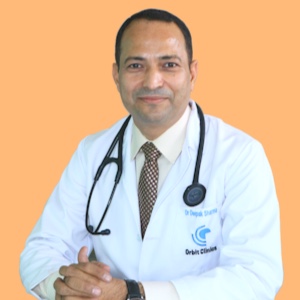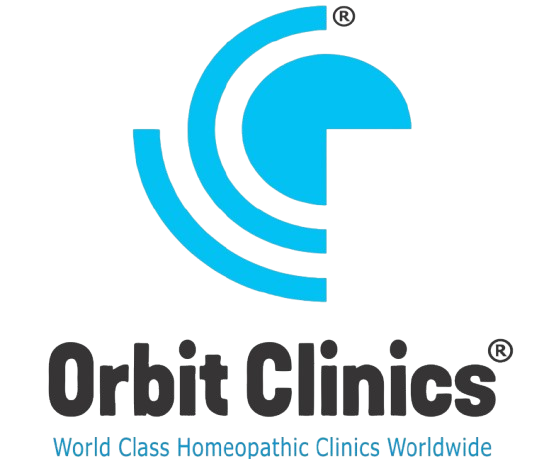A Comprehensive Exploration of the Global Impact of Rape, Survivor Support, and the Power of Prevention through Education and Empowerment

Written by
Dr. Deepak Sharma
BHMS, MD, Ph.D. (Scholar)
Homeopathic Physician and Educator
Founder – Orbit Clinics (World Class Homeopathic Clinics Worldwide)
Introduction:
Rape is a devastating and complex crime that affects individuals, families, and communities worldwide. It is a critical topic to discuss and understand, as it has far-reaching consequences on the physical and psychological well-being of victims. This article aims to shed light on the nature of rape, its current data, the consequences faced by survivors, and the importance of prevention and support.
Understanding Rape:
Rape is defined as the act of forcing sexual intercourse or other forms of sexual penetration without the consent of the victim. It can occur in various contexts, including within relationships, marriages, and friendships, as well as during wartime and in other situations involving power imbalances. The perpetrators of rape can be of any gender, as can the victims, and rape can occur between strangers or acquaintances.
Current Data on Rape:
According to the World Health Organization (WHO), around 35% of women worldwide have experienced either physical and/or sexual intimate partner violence or non-partner sexual violence in their lifetime. A 2021 report from the United Nations (UN) also highlighted that nearly 18% of women and girls aged 15 to 49 experienced sexual violence by an intimate partner in the past 12 months. However, it is essential to acknowledge that these statistics might not reflect the true scale of the problem, as rape is often underreported due to fear, shame, or cultural and societal barriers.
Consequences of Rape:
Rape can have profound and long-lasting consequences on survivors. These consequences can manifest physically, emotionally, and psychologically. Some of the common physical health consequences include injuries, sexually transmitted infections, and unwanted pregnancies. The emotional and psychological impacts of rape are equally severe, with survivors often experiencing depression, anxiety, post-traumatic stress disorder (PTSD), and feelings of shame, guilt, and isolation.
The consequences of rape extend beyond the individual, affecting families and communities. It can cause strains on relationships, stigma, and even economic repercussions due to lost productivity or medical expenses. In some cases, rape can also contribute to the perpetuation of harmful societal norms and cycles of violence.
Prevention and Support:
Preventing rape and supporting survivors is crucial in addressing this pervasive issue. Here are some essential steps:
- Education and Awareness: Promoting comprehensive sex education, consent awareness, and healthy relationship dynamics can foster a culture of respect and empathy, thereby reducing the risk of sexual violence.
- Legal Frameworks: Strengthening laws and policies that protect the rights of survivors and hold perpetrators accountable is essential in addressing rape. This includes implementing laws that explicitly criminalize marital rape, ensuring victim-friendly reporting processes, and providing legal support for survivors.
- Support Services: Providing accessible and comprehensive support services, such as medical care, counseling, and legal assistance, is vital in helping survivors heal and rebuild their lives.
- Community Engagement: Engaging communities in conversations about rape and challenging harmful norms and beliefs surrounding sexual violence can create an environment that supports survivors and deters potential perpetrators.
- Empowerment: Empowering individuals, particularly women and girls, through education and economic opportunities, can reduce their vulnerability to sexual violence and enable them to assert their rights.
Law in India for Rape:*
The Indian Penal Code (IPC) is the primary source of laws governing rape in India. Some of the relevant sections of the IPC include:
Section 375:
This section defines rape as a man committing an act of sexual intercourse or any other non-consensual sexual act with a woman under certain circumstances. These circumstances include:
a. Against her will
b. Without her consent
c. With her consent, but obtained by using force or intimidation
d. With her consent, but obtained by fraud or misrepresentation
e. With the consent of a woman who is incapable of understanding the nature and consequences of the act.
Section 376:
This section prescribes the punishment for rape. The minimum punishment for rape is imprisonment for a term of seven years, which may extend to life imprisonment, and a fine. In cases of aggravated rape (as defined under Section 376A, 376B, 376C, and 376D), the punishment may be more severe.
- Section 376A: This section deals with punishment for causing death or resulting in a persistent vegetative state of the victim due to rape.
- Section 376B to 376D: These sections address specific cases of rape, such as rape by a person in a position of authority, rape by a relative or guardian, and gang rape.
- Section 376E: This section provides for enhanced punishment for repeat offenders, including life imprisonment or the death penalty in some cases.
- The Protection of Children from Sexual Offences (POCSO) Act, 2012: This act specifically addresses sexual offenses against children and provides additional protection and stringent punishments for offenses against minors.
*(Please note that this is only a general overview of the legal laws on rape in India. It is essential to consult a legal professional for the most accurate and up-to-date information on this topic.)
Counseling for Rape Victims:
Counseling is a vital aspect of supporting rape survivors as they navigate the complex emotional and psychological consequences of their trauma. It is essential to provide rape victims with access to specialized, trauma-informed counseling services that can help them process their experiences and facilitate healing. Here are some critical aspects of counseling for rape victims:
- Trauma-Informed Care: Counselors working with rape survivors must be trained in trauma-informed care, which emphasizes creating a safe and supportive environment, recognizing the effects of trauma, and avoiding re-traumatization. This approach helps counselors to better understand and respond to the unique needs of each survivor.
- Crisis Intervention: In the immediate aftermath of a sexual assault, crisis intervention counseling can provide immediate support, information, and resources. This type of counseling focuses on stabilizing the survivor’s emotions, ensuring their safety, and connecting them with appropriate services.
- Individual Therapy: Individual therapy can be a critical component of a survivor’s recovery, providing a confidential space to explore emotions, thoughts, and behaviors related to the assault. Various therapeutic modalities can be utilized, such as cognitive-behavioral therapy (CBT), psychodynamic therapy, or eye movement desensitization and reprocessing (EMDR), depending on the individual’s needs and preferences.
- Group Therapy: Group therapy offers survivors an opportunity to connect with others who have experienced similar traumas, share their stories, and provide mutual support. This shared experience can help reduce feelings of isolation and foster a sense of community and understanding.
- Family and Couples Counseling: Rape can have a significant impact on the victim’s relationships with their partners and family members. Family and couples counseling can help address communication difficulties, rebuild trust, and foster understanding among all parties involved.
- Long-term Support: Recovery from rape can be a lengthy and non-linear process. It is essential to provide long-term counseling support to survivors, allowing them to access the care they need throughout their healing journey.
By integrating counseling services into a comprehensive support network for rape survivors, we can ensure that they receive the emotional and psychological support necessary to heal and rebuild their lives. This holistic approach to care is vital in addressing the far-reaching consequences of sexual violence and fostering resilience among survivors.
The Healing Potential of Homeopathy for Rape Victims:
Understanding Homeopathy:
Homeopathy is a holistic, alternative medicine system based on the principle of “like cures like.” Developed over two centuries ago by German physician Samuel Hahnemann, homeopathy aims to stimulate the body’s innate healing process by administering minute doses of natural substances that, in larger amounts, would cause symptoms similar to those of the illness being treated.
The Pillars of Homeopathic Treatment:
Individualized Approach:
Homeopathy recognizes the uniqueness of every individual and tailors treatment accordingly. For rape survivors, this means that a homeopath will consider each person’s specific physical, mental, and emotional symptoms to determine the most appropriate remedy.
Mind-Body Connection:
Homeopathy acknowledges the interconnectedness of the mind and body, addressing both the physical and emotional aspects of trauma. This holistic approach allows for comprehensive healing, addressing the root cause of the victim’s symptoms.
Minimal Doses:
Homeopathic remedies are highly diluted, making them non-toxic and free from side effects. This gentle approach ensures that the treatment is safe and compatible with any other therapies or medications the survivor might be taking.
The Healing Potential of Homeopathy for Rape Survivors:
Alleviating Physical Symptoms: Homeopathic remedies can help reduce physical symptoms associated with rape trauma, such as pain, injuries, and sleep disturbances. Specific remedies like Arnica can address physical pain and inflammation, while others like Nux Vomica can assist in restoring sleep patterns.
Emotional Support:
Rape survivors often experience a range of emotional symptoms, including anxiety, depression, and post-traumatic stress disorder (PTSD). Homeopathy can help in managing these emotional imbalances by prescribing remedies like Aconite for acute anxiety or Ignatia for grief and shock.
Restoring Balance and Resilience:
Homeopathy can help rebuild the survivor’s sense of self and resilience by addressing the energetic imbalances created by trauma. Remedies like Staphysagria may be prescribed for feelings of vulnerability and suppressed anger, allowing the individual to regain strength and confidence.
Complementary Treatment:
Homeopathy can be used in conjunction with other therapies like psychotherapy, support groups, and medications, providing a multi-faceted approach to recovery. This integrative treatment model ensures that survivors receive comprehensive care and support throughout their healing journey.
References:
- World Health Organization. (2021). Violence against women prevalence estimates, 2018. Retrieved from https://www.who.int/publications/i/item/9789240022256
- United Nations. (2021). The World’s Women 2021: Trends and Statistics. Retrieved from https://unstats.un.org/unsd/demographic-social/Products/worldswomen/
- Indian Penal Code. (1860). Sections 375, 376, 376A, 376B, 376C, 376D, and 376E. Retrieved from https://indiankanoon.org/doc/623254/
- The Protection of Children from Sexual Offences Act. (2012). Retrieved from https://wcd.nic.in/sites/default/files/POCSO-Model%20Guidelines.pdf
- Hahnemann, S. (1810). Organon of Medicine. Dresden: Arnoldische Buchhandlung.
- Ullman, D. (1991). The Consumer’s Guide to Homeopathy. New York: Jeremy P. Tarcher/Putnam.
- Vithoulkas, G. (1980). The Science of Homeopathy. New York: Grove Press.

